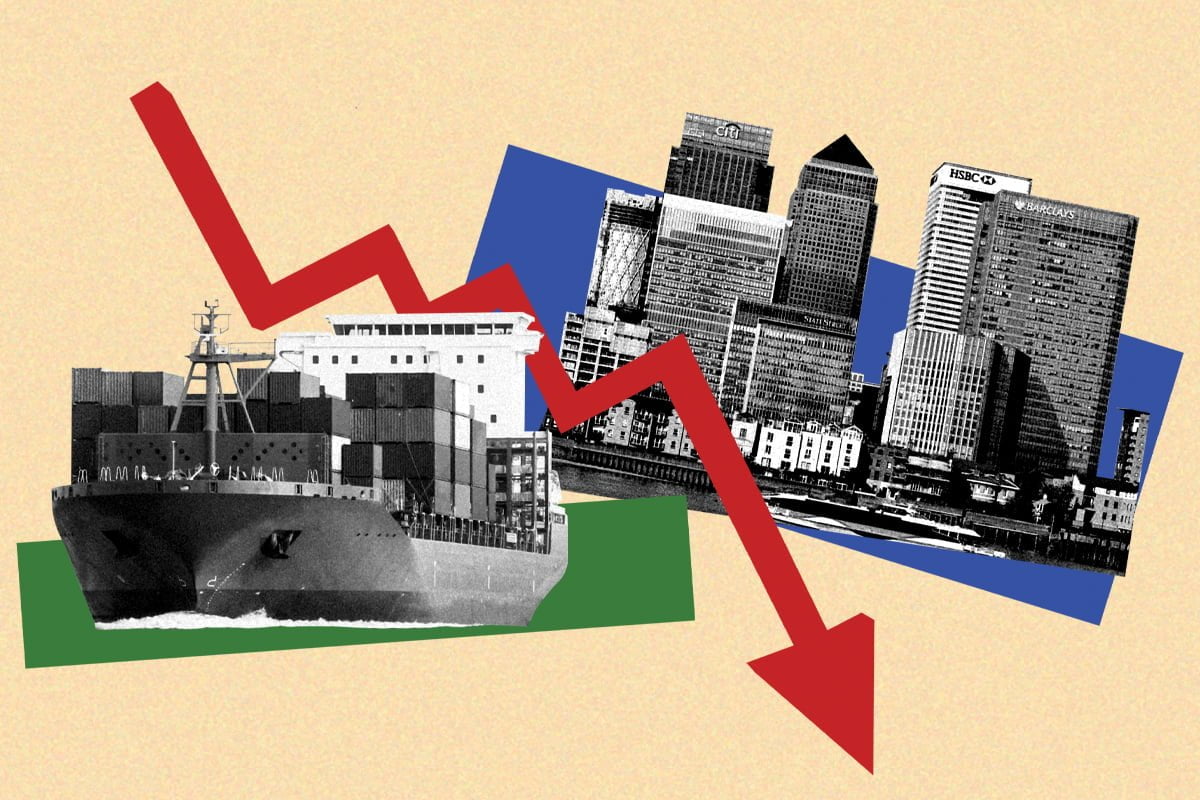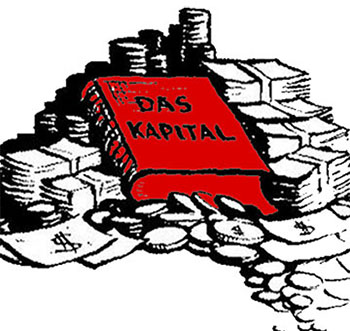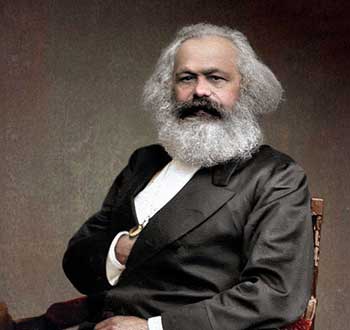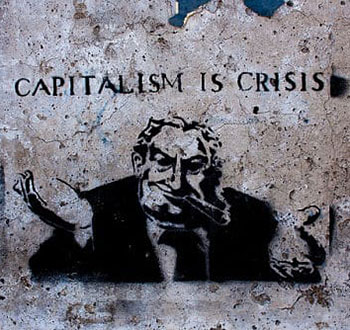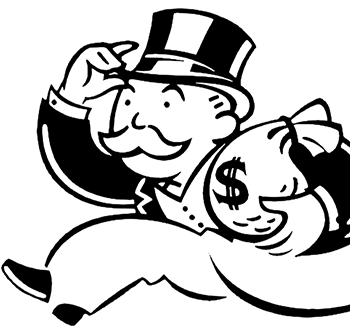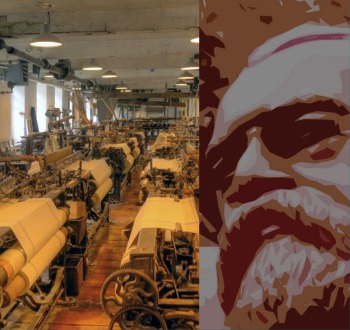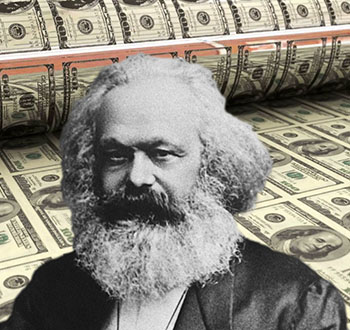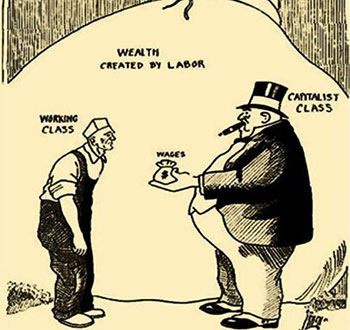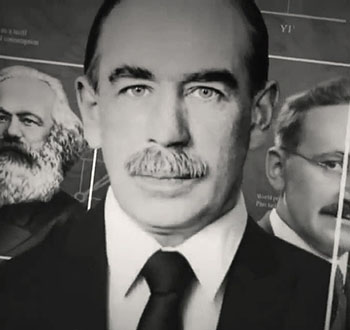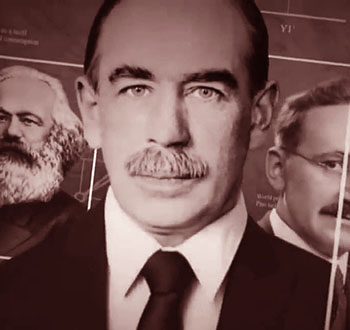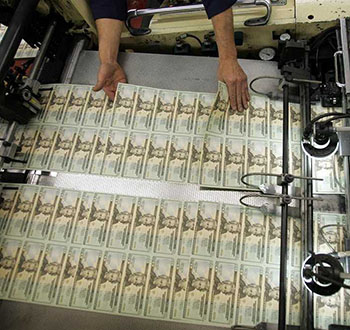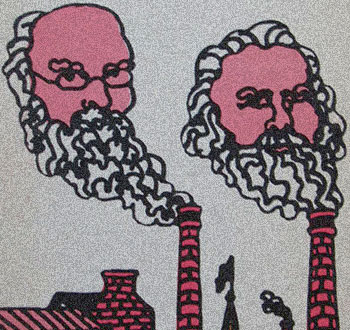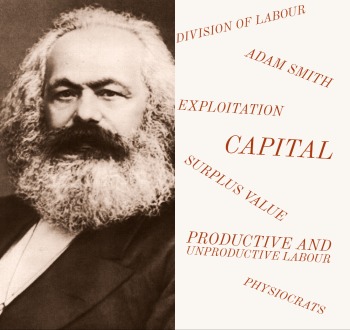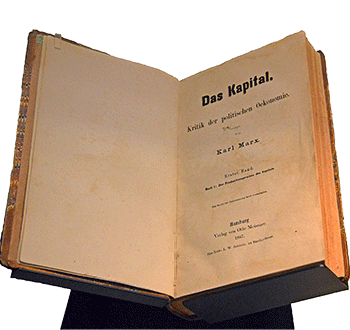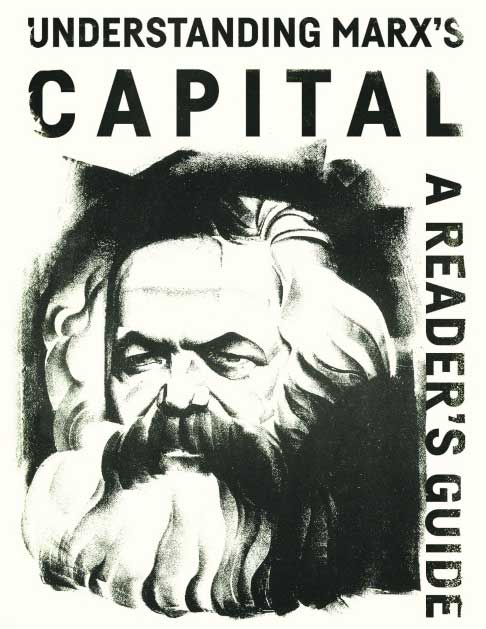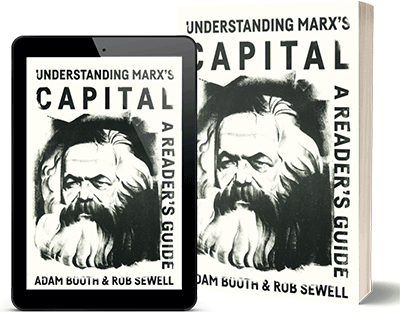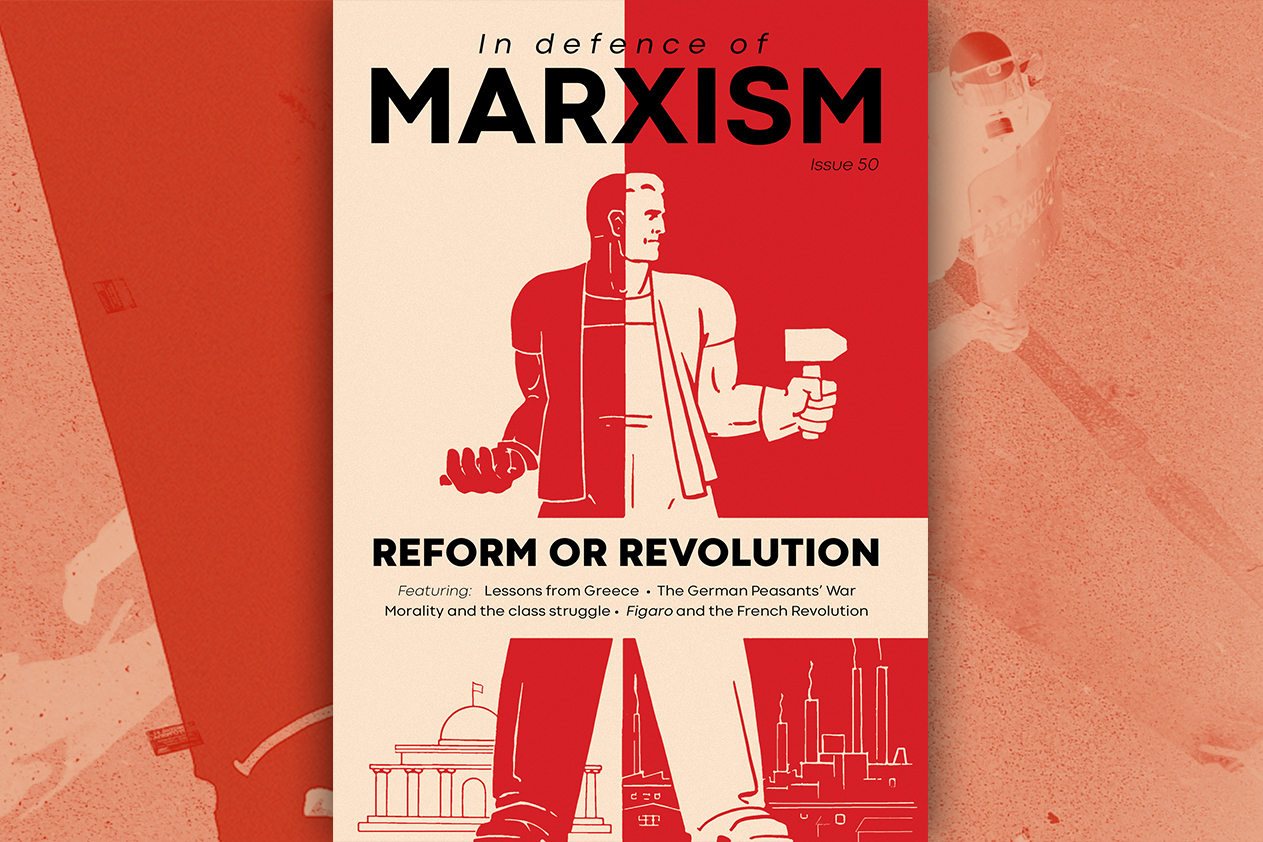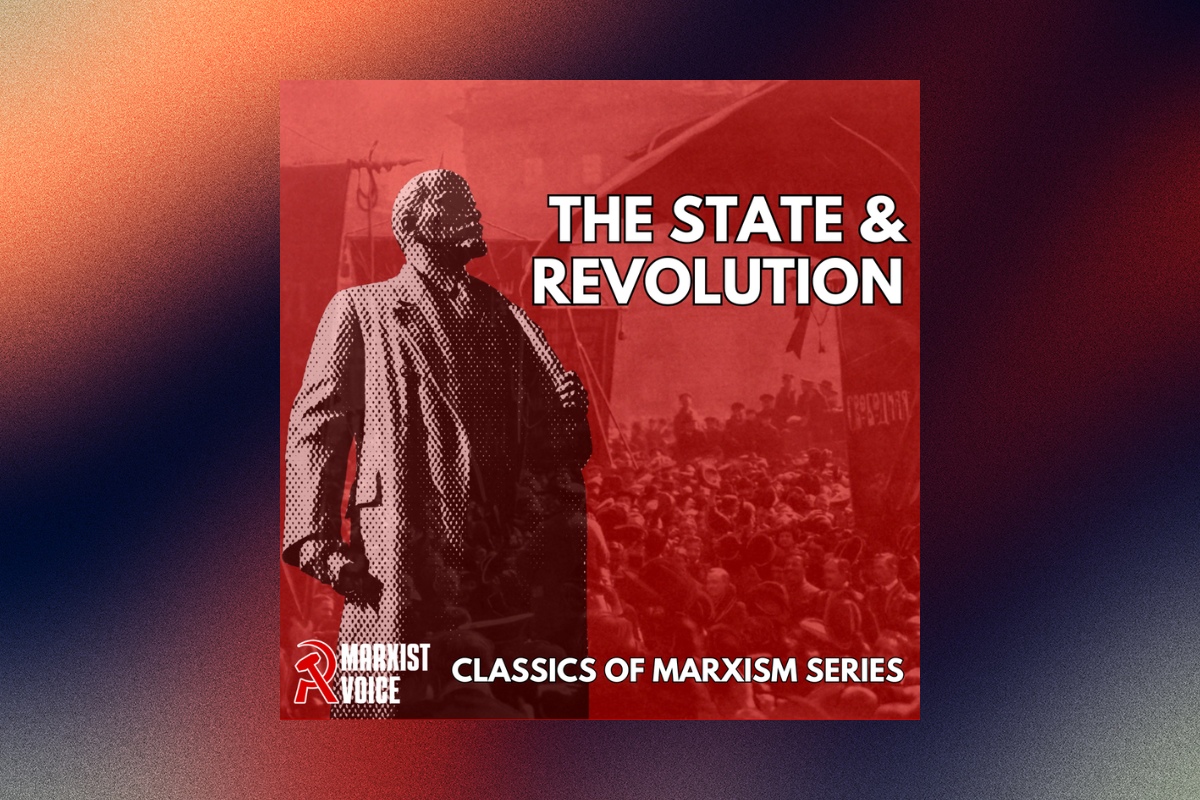The economic system we live under today is capitalism: based on competition, private ownership and the production for profit.
With his vast collection of economic writings – including the three volumes of Capital – Karl Marx stripped away the mysticism surrounding capitalism, uncovering and explaining its inner processes, emergent laws, and intrinsic contradictions.
Marx built upon the work of his ‘classical’ predecessors – in particular the British economists Adam Smith and David Ricardo. These enlightenment thinkers had attempted to examine capitalism on a scientific basis. In doing so, they hit upon the idea that labour was the source of all new value within society. By developing this ‘labour theory of value’, Marx was able to explain an enigma that had eluded the classical economists: that of profit. Simply put, the capitalists’ profits are obtained from the unpaid labour of the workers.
But this fact, in turn, led Marx to an even more shattering conclusion: that the capitalist system is inherently prone to periodic crisis of overproduction, as the forces of production crash up against the narrow limits of the market. This is the picture we find ourselves in today. Armed with the ideas of Marxism, we can see that there is no way out of this crisis within the confines of capitalism. The only solution is socialist revolution.
Learn the basics
Marxist classics
& books
Originally published in the 1970s, this article is a good, brief introduction to the basics of Marxist Economics.
For the bourgeois economists the labour theory of value presented a paradox as well as a blind alley. The man who found the way out of this blind alley was Karl Marx.
This article provides an overview of Marx's explanation for why capitalism goes into crisis, discussing the inherent contradictions within the capitalism system.
Imperialism, the highest stage of capitalism, has reached its limits. The monopoly board has little space left to buy and invest. The expansion of capitalism is at an end.
One of the basic ideas of Karl Marx that is constantly being denied by the bourgeois is his theory of value. Yet this theory is still valid today.
Karl Marx’s Wage Labour and Capital contains many important insights into the workings of the capitalist system. Available from Wellred in paper copy and as an ebook.
Value, Price and Profit was first delivered as a speech delivered by Marx in June 1865. Also available from Wellred Books as part of The Classics of Marxism: Volume Two.
In-depth analysis
Marxist classics
& books
Written as a discussion document in 1960, at the height of the boom, Will There Be a Slump? was a major contribution to the debate on economic perspectives.
While under-consumption certainly exists for the masses, as any worker can testify, it is not the direct cause of capitalist crisis.
There is considerable confusion about the tendency for the rate of profit to fall, which isolates one element in Marx’s economic theory and exaggerates its significance.
In this article, we compare and contrast the ideas of Keynes, Hayek, and Marx in the context of the current crisis of capitalism.
A five-part series analysing the role of money within class society, associated with the rise of commodity production.
MMT has created a buzz on the left recently, with its supporters citing it as an answer to all our economic woes. But is it a solution to the crisis of capitalism?
Kondratiev concluded that each capitalist downswing is followed by an upswing which can last for decades. However, this has no solid basis either in fact or in theory.
As more and more surplus value is siphoned off into unproductive activities, the issue of “productive” and “unproductive” labour has once again resurfaced.
Marxist classics
Marxist classics
& books
Marx and Engels together waged a relentless struggle against the ideas of petty-bourgeois socialism, striving to put socialist thought on a scientific basis. As a result Marx subjected the semi-anarchist ideas of Proudhon to a withering criticism.
While Marx did not write a specific book on capitalist crisis, his theory of crisis is present throughout his economic writings, especially Theories of Surplus Value.
Capital reading guide
Marxist classics
& books
Marx's Capital was a book that revolutionised political economy and for the first time opened our eyes to the real workings of capitalism. It was, however, met with a wall of silence from the mainstream economists and the establishment. Despite this, Capital became regarded in the workers' movement as the Bible of the working class.
The aim of this book, written by authors from the International Marxist Tendency, is to help guide readers through the pages of volume one of Capital; to bring out the main themes and ideas contained within it; and to discuss the relevance of this great Marxist classic in terms of understanding the crisis-ridden world around us today – and, most importantly, how we can radically transform it.
Introduction: the making of Marx’s Capital
Introduction: Marxism in Our Time
3) Chapters 4-8: Surplus-value
4) Chapters 9-11: Exploitation
5) Chapters 12-14: Productivity, Co-operation, and the Division of Labour
8) Chapters 23-25: Accumulation
9) Chapters 26-33: The Origins of Capitalism
Appendix 1: The Organic Crisis of Capitalism
Appendix 2: ‘Underconsumption’ and the Marxist Theory of Crisis
Available from Wellred Books Britain
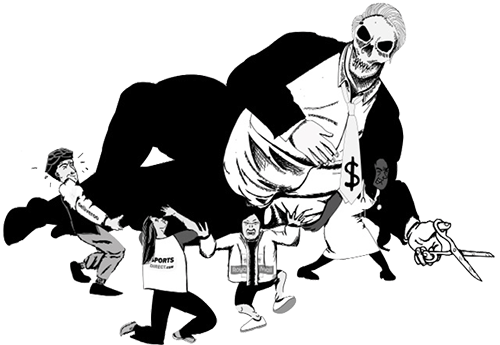
“Capital is dead labour which, vampire-like, lives only by sucking living labour, and lives the more, the more labour it sucks.” - Marx, Capital Vol I, Chapter 10
Available from Wellred in paper copy and as an ebook.
Introduction: the making of Marx’s Capital
Introduction: Marxism in Our Time
3) Chapters 4-8: Surplus-value
4) Chapters 9-11: Exploitation
5) Chapters 12-14: Productivity, Co-operation, and the Division of Labour
8) Chapters 23-25: Accumulation
9) Chapters 26-33: The Origins of Capitalism
Appendix 1: The Organic Crisis of Capitalism
Appendix 2: ‘Underconsumption’ and the Marxist Theory of Crisis

“Capital is dead labour which, vampire-like, lives only by sucking living labour, and lives the more, the more labour it sucks.” - Marx, Capital Vol I, Chapter 10
Capital in a day














Audio & video
Marxist classics
& books
Rob Sewell discusses Marx's economic ideas and how these explain the deep global crisis of capitalism that we have been living through for the last 10 years.
Ben Gliniecki discusses the development of Marx's theories, examining the classical economists who helped shape his ideas on questions such as the Labour Theory of Value.
In this video, Adam Booth provides an overview of the history of money, using a Marxist economic analysis to strip away the veil of mystery that surrounds it.
In this talk, Adam Booth looks at the ideas of Keynesianism and MMT, and explains why only a Marxist perspective can offer a way out of capitalism's crisis.
Adam Booth analyses the current crisis of capitalism and discusses Marx's theories about why capitalism enters into crisis.
Adam Booth discusses the question of technology, machinery, and innovation under capitalism, looking at how private property and production for profit have become an enormous barrier to society's development.
Adam Booth looks at the growing gap between the rich and poor in society today, contrasting the analysis of Thomas Piketty – the French "rock star" economist – and Karl Marx as to why capitalism creates inequality and a concentration of wealth.

